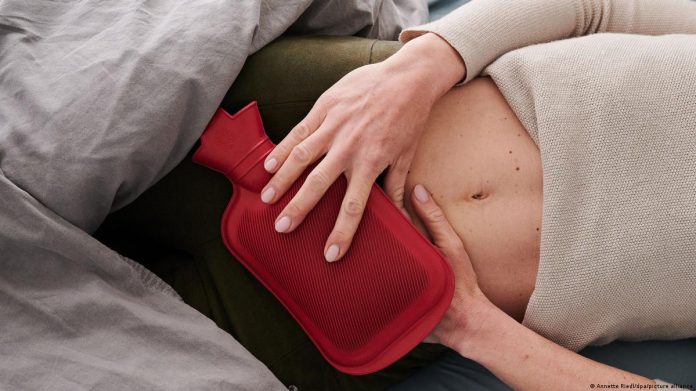Some studies suggest that endometriosis, a gynecological condition found in 6 to 10 percent of women of reproductive age and consisting of endometrial-like tissue outside the uterus, is associated with psychiatric symptoms, especially bipolar disorder:
“A consecutive sample of 16 women with laparoscopy-diagnosed endometriosis were evaluated for mood disorders. Twelve women met DSM- III criteria for a mood disorder: seven for bipolar disorder, mixed, three for bipolar disorder, manic, and two for major depression. Two women had equivocal diagnoses and two showed no evidence of mood disorder. Nine subjects had first-degree relatives with histories of severe mood disorders.”
Unfortunately, the reason for the association is unclear, as not much research has been done specifically on the correlation between the two conditions. While one study found no such correlation, another study, claiming to be more rigorous, did find the association, although the researchers admitted that the correlation does not definitively establish a cause/effect relationship, and the nature of the relationship remains unclear:
“The strengths of this study include having a homogeneous group of women with chronic pelvic pain and a laparoscopically confirmed diagnosis of endometriosis, all of whom were seen by the same gynaecologist. An additional strength is that the pain levels were equivalent in the two patient groups, a finding that would argue against the differential rates of comorbid mood disorders being due to different levels of chronic pain. The major limitation of the study is the relatively small number of women in the non-endometriosis pelvic pain group. A second limitation is that the study was conducted in a specialized clinic for women with endometriosis. It is possible that the women in this setting have a chronic or more debilitating form of the disorder, thus reducing the generalizability of the results. It is also possible that many of the women who agreed to participate in the study may have been experiencing mood difficulties before their diagnosis of endometriosis.”
The disorder causes pelvic pain and is frequently associated with dyspareeunia, deep pelvic pain and dysmenorrhea. More generally, a meta-analysis examining 18 studies found that 56.4 percent of the women with a diagnosis met the criteria for a psychiatric disorder whereas only 43.6 percent of the women without this diagnosis met the criteria for a psychiatric disorder. The study examined all relevant articles published in English, identifying 18 original research studies whose purpose was to examine the association between endometriosis and psychiatric symptoms, with a combined total of almost 1,000 endometriosis examined.








